Similar, Adversity, Motivating & Empowerment! REST’s Mental Wellness Program.
“Without REST Centres, I’d be on a very different pathway. I see myself in jail or even scavenging for money, or in very negative spaces. I see myself in a hole. I don’t think I would be doing good for myself.” – Alexandra
Youth homelessness refers to the position that prevails of young people aged 13 to 24 who live independently of their parents and/or caregivers but lack the resources or abilities to obtain permanent, secure, or reliable housing (Mental Health Commission of Canada, 2014). Housing and mental health are inextricably intertwined and are tied to larger systemic issues such as homelessness. When a young person has difficulties obtaining suitable housing, they are more likely to develop mental health issues and have more difficulty obtaining prompt, high-quality mental health services.
Homelessness particularly impacts those who have lived experience with mental health and addictions disorders. While numerous causes can contribute to homelessness, mental health is a key factor—an estimated 25 to 50% of homeless persons have a mental health issue (Mental Health Commission of Canada, 2014). When homelessness is combined with a mental health problem, the repercussions are often more severe. Individuals are more likely to be homeless for extended periods of time and have less interaction with family and friends. They face more employment difficulties and are in worse health than other homeless persons. Consequently, individuals who share accommodations on a temporary or emergency basis also negatively affects one’s mental health. People whose principal overnight residence is a supervised government or privately managed shelter meant to offer temporary living arrangements, is detrimental to one’s mental health.
Safe and affordable housing can give a place for individuals to live in dignity and progress towards rehabilitation. Individuals suffering from severe mental illnesses and addictions usually regard income and housing as the most essential variables in reaching and maintaining their health. Maintaining secure and affordable housing, on the other hand, can be challenging for many people. Individuals may be incapable to find employment and/or lose money during periods of sickness. They may have problems paying rent and could ultimately lose their place of residence if they do not have an appropriate income. As a result, many people live in poor housing that is physically unsuitable, overcrowded, loud, and in unpleasant neighbourhoods. Furthermore, those who cannot afford to live in appropriate housing are more likely to be exposed to violence, infectious infections, and chronic illnesses.
According to research, a stable, supportive living environment is critical to the overall wellness individuals and is critical to their rehabilitation. Housing with support can result in favourable outcomes such as improved living skills, better wellness, a greater sense of independence, and more community participation. According to research, preserving and enhancing the housing of people with major mental illnesses can help to reduce psychiatric symptoms and, as a result, the need for crisis medical services.
“I would have kept making excuses and hoping that somebody else would come do things for me, whereas REST gave me the stability, the motivation -all of it- to do it on my own. – Krista
REST Centres provides support to help heal the trauma that many homeless youths have encountered in their lives due to a lack of accessible services and health care. We recognize that all individuals have faced adversity and challenges in their life and needs some assistance getting back on their feet. REST Centres ensures that our youth are not alone.
One way REST supports our youth’s mental wellness is through our program Similar, Adversity, Motivating & Empowerment! By participating in SAME, our youth have a safe space to discuss their challenges and triumphs.
SAME seeks to remove stigma and enhance youth mental health through group therapy in order to address the lack of mental health resources for racialized and homeless youth in Peel. Sandra, a REST program participant, had the following to say about her experience with SAME. “I feel comfortable coming here and talking my problems out. I appreciate the comfort here because who else can I run to? They’re so supportive. No one is ever going to let me down.” – Sandra. REST Centres offers support from trained counsellors and guidance where youth can go for help.
“Through my sessions at REST I have learned coping mechanisms that help me deal with my personal issues on my own. Just having someone to talk to makes me feel so much better.” – Anonymous REST program participant
Let’s improve mental health awareness by creating a sense of community!
CALL US TODAY if you are a youth who is homeless or at-risk of homelessness and need mental health assistance. REST Centres is here to support you.
1-905-863-1118
Mental Health Commission of Canada: Housing and Homelessness Issue Paper
Retrieved March 31, 2014 from http://www.mentalhealthcommission.ca/English/issues/housing?terminitial=23

